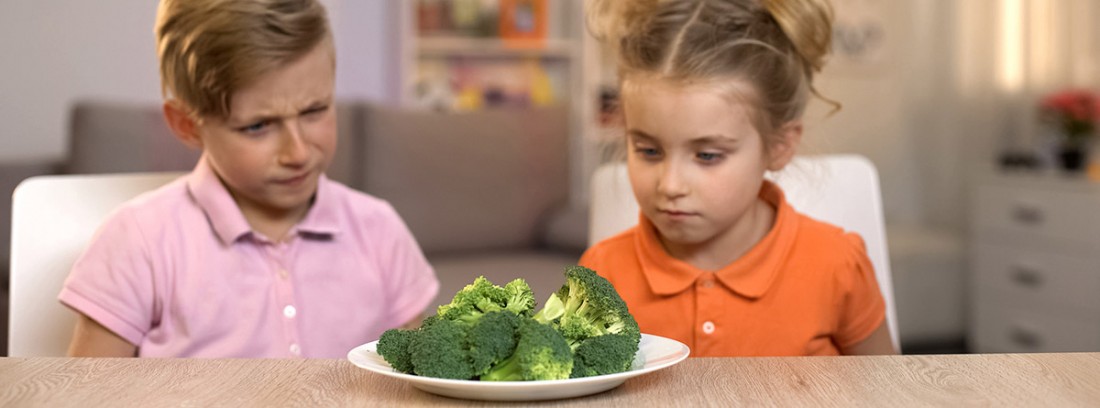Decreased appetite

Why is my child not hungry?
Growth between ages 1 and 5 is slower and they need fewer calories and appear to have less appetite (this is called "Physiological anorexia"). The amount that a drink is controlled by the appetite center located in your brain. Many parents try to force their child to eat more than he needs, because they fear that the child's lack of appetite could affect his health or cause a nutritional deficiency.
If the pediatrician who monitors the child you do not observe any problems in the child's development do not force him to eat as it could produce negative feelings towards food.
What can parents do?
Let the child decide how much to eat at mealtime. Almost all children eat a sufficient amount. If the child is hungry, he will eat. If not, you will be hungry at the next meal.
- Carry out 5 meals a day but in moderation in the mid-morning and mid-afternoon snacks.
- Do not snack between meals to prevent the child from being satiated and then not hungry. Make sure that the child arrives at mealtime on an empty stomach.
- The child must eat alone and their autonomy must be promoted.
- Make mealtime enjoyable and that the child participates in the preparation of the dishes.
- Avoid having the conversation at the table focus exclusively on food.
- Do not prolong the meal time: give a reasonable time to eat.
- Drinking too much milk can fill children up and decrease their appetite. Limit since milk contains as many calories as most solid foods.
When to go to the Pediatrician?
- Our son is not gaining weight or is losing weight.
- You have some symptoms associated with illness and you look bad (for example, diarrhea or fever).
- Systematically reject a specific food.
(Updated at Apr 14 / 2024)